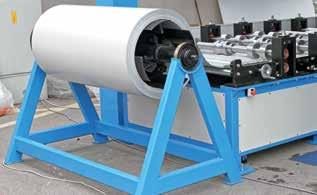
11 minute read
Manufacturing
Incentives are in place to support new investment.
The manufacturing sector employs the third-most people of South Africa’s economic sectors, about 1.7-million, after financial services and retail.
Advertisement
The Department of Trade and Industry (dti) is the state’s lead promoter of the sector. The main vehicle for the dti is the Industrial Policy Action Plan (IPAP) which is periodically updated with particular focus areas. In marking the 10th version of IPAP in 2018, the department noted that some “deep-seated structural problems” in the domestic economy are still in place.
The Manufacturing and Competitiveness Enhancement Programme (MCEP) of the National Department of Trade and Industry (dti) announced in 2017 that it had disbursed a total of 1 552 grants to the value of R5.8-billion which had resulted in 230 000 jobs being “sustained”. Plastics, pharmaceuticals and chemicals received 31% of the money, metal fabrication, capital and real transport equipment 28% and agri-processing 21%.
Because of the dti’s Clothing and Textile Competitiveness Programme, that sector currently employs around 95 000 workers, contributing 8% to manufacturing GDP and 2.9% to overall GDP. In the leather sector 22 new factories have been opened, supporting 2 200 jobs. Manufacturing value addition for companies receiving the incentive has grown by 60.8%, and productivity by 22.3%.
The various IPAPs are intended to create policy certainty to stimulate investment. The creation of an investment “one-stop shop” is another measure aimed at the same goal. Investor support is also available in terms of tax incentives, on budget support measures and Special Economic Zones (SEZs). Increasing demand for goods manufactured locally through government procurement programmes is yet another way of stimulating the manufacturing sector.
Growth elsewhere in Africa and beyond is something that South Africa’s manufacturers are increasingly turning their attention to. Relationships with other Southern African countries through SADC, and to Brazil, Russia and India through the BRICS grouping hold tremendous potential for makers of goods in South Africa.
SECTOR INSIGHT
US tariffs on steel imports will affect South Africa. • The leather sector is making a comeback.
Innovation
The Support Programme for Industrial Innovation (SPII), run by the Industrial Development Corporation (IDC) on behalf of the dti, promotes technology development. New technology has been embraced by some innovative manufacturers. Desert Wolf’s Skunk Riot Control Chopper is an unmanned light aerial vehicles (UAV) that has proved popular in the world market. Denel makes a drone product that can be adapted for use by conservationists.
Another IDC initiative has allocated R23-billion over three years
to support the Black Industrialist Programme to help existing entrepreneurs grow.
Additive manufacturing is receiving support from the state through the Department of Science and Technology and a strategic business unit with a focus on new industries at the dti. Additive manufacturing uses 3D data.
The main sectors receiving support (and R358million in public money has been invested in research since 2014) are jewellery, tooling, medical and dental and aerospace. Products such as titanium medical implants and aerospace components have come out of the programme.
The Centre for Advanced Manufacturing (CFAM) is housed at North-West University in Potchefstroom. The centre specialises in extruder technology, an important component in the food-manufacturing process. CFAM works with Gaborona Consulting, the Vaal University of Technology, Thripp (a dti technology programme) and ChemCity, an initiative of Sasol.
Metals
Among other important sectors are metals beneficiation (more than 50% of the world’s ferrochrome is produced in South Africa), coke and refined petroleum products and information and communication technology. Steel and petroleum collectively make up about 45% of South Africa’s total manufacturing production capacity.
Steel has been experiencing a volatile few years, with reduced demand from China severely reducing production volumes in South Africa. The Steel and Engineering Industries Federation of Southern Africa (Seifsa) reported that 19 000 jobs were lost in the metals and engineering sector in the nine months to September 2016. New import tariffs of 25% imposed by US President Trump will further hurt the SA steel sector.
This sector makes up 28% of manufacturing in the country. The country consumes about 150 000 tons of stainless steel every year. South Africa makes about 500 000 tons of primary stainless steel (most of which is exported) and imports a further 40 000 tons.
SOLUTIONS FOR AFRICA
Modern manufacturers are coming up with ways to improve efficiency. In Africa, water saving and conservation is becoming a vital part of doing business. Marley Pipe Systems has released a revolutionary new hot and cold water supply solution called Profit. Not only is Pro-fit made from the highest grade PE-RT (Polyethylene with Raised Temperature Resistance), which reduces loss through punctures and tears, but it also reduces installation costs by 50% and is resistant to corrosion and impact. Water passing through the system is healthier and by avoiding the use of metal any scrap value is eliminated, thus making the product more secure. The recent extended drought has reminded all South Africans of how fragile water supply can be. The Marley Vynadeep® Rainwater System efficiently channels roofwater into tanks, reducing demand on ground water and supplying vital back-up for individual private or corporate premises. Marley Pipe Systems is active in several parts of Africa and with an increased uptake in the use of gas, Marley’s presence is growing. As big retailers expand their footprints in Namibia, Mozambique and Malawi, so Marley distributes larger volumes through those channels. With the mining sectors of countries such as Zambia, Tanzania and the DRC showing signs of recovery, so the gas market is growing further still.

Cheap imports have been at the heart of problems for the steel sector, as they have for textiles, but other issues include energy prices and labour costs.
The dti has moved to try to protect the local steel industry by regulating the use in the construction sector of locally produced and manufactured steel and steel products. Another possible intervention is related to
energy prices. Silicon Smelters, which has plants in Mpumalanga and Limpopo, has asked for a two-year negotiated price agreement (NPA) on electricity, which would allow it to resume production. The National Energy Regulator of South Africa (Nersa) has the power to grant such exemptions where the industry is regarded as strategic.
The structural mill of Evraz Highveld Steel in Witbank was officially relaunched in June 2017 after ArcelorMittal South Africa signed a contract to supply blooms and slabs for the mill to make into heavy structural steel. Evraz Highveld went into business rescue in 2015. The contract is for two years with an option to renew for another year. Alternately, ArcelorMittal may buy the mill after the two years.
Elsewhere in Mpumalanga, the presence of Ferrometals means that Mpumalanga is still an important place for metals and machinery manufacturing, but the turbulence in the steel sector has reminded everyone of the need to diversify. Samancor Chrome (which runs Ferrometals) is the second-largest ferrochrome producer in the world with three plants.
Middelburg-based Columbus Stainless is a major supplier of stainless-steel products to the domestic and international market. The Manganese Metal Company in Nelspruit is the largest producer of pure electrolytic manganese metal in the world.
Iron production at Saldanha in the Western Cape includes hot-rolled coil produced by ArcelorMittal and cold-rolled and galvanised steel by DSP, a joint venture between South Africa’s Industrial Development Corporation (IDC) and a Belgian company, Duferco.
ONLINE RESOURCES
Aluminium Federation of South Africa: www.afsa.org.za Centre for Advanced Manufacturing: www.cfam.co.za Manufacturing Circle: www. manufacturingcircle.co.za Steel and Engineering Industries Federation of Southern Africa: www.seifsa.co.za South African Textile Federation: www.texfed.co.za
VARIETY AND QUALITY
Tirisano Holdings manufactures between 200 and 1 700 pairs of shoes per day at its facility in Phuthaditjhaba in the Free State. The factory produces formal shoes and school shoes, sneakers and pumps. The pumps are adorned with artistic designs, including African print designs. Some testimonials attest to the professionalism of Tirisano. “Since our involvement with Tirisano Shoe Company, they have been professional, dependable and competitively priced with good aftersales support. Tirisano supplies shoes to many of our beneficiary schools.” – Rivers Foundation “We have had various engagements with Tirisano (Pty) Ltd with regard to conducting assessments and due care with a view of considering development support to them in the future. To this end we had a site inspection at their facilities in Qwaqwa. The school shoes were manufactured on time, with the requisite quality. Tirisano’s conduct was always professional.” – National Development Agency

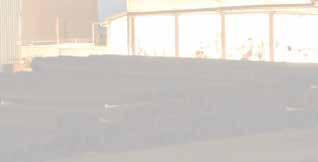
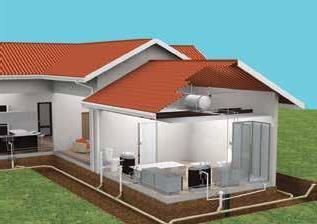


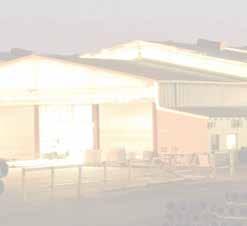




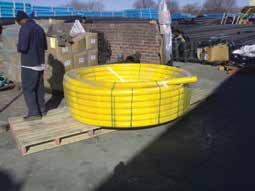

Kgotso Ramooana
BIOGRAPHY
Kgotso Ramooana is the youngest black shoe manufacturer in South Africa. He has a diploma in Arabic for Non-Arab speakers and is currently studying for a diploma in digital marketing. Growing up in a rural area, he succeeded against the odds. Kgotso has been part of the Standard Bank Accelerator Programme for Entrepreneurs and in 2018 participated in a seminar on footwear designing and manufacturing technology organised by the International Business Vocational College in China. His long-term vision is to see the factory expanding its branches worldwide.
Stepping out to create quality products
The CEO of Tirisano Holdings, Kgotso Ramooana, relates how a revitalised shoe factory is creating employment.
What is your main business?
We manufacture a variety of shoes, including pumps, sneakers and school shoes. Our production capacity varies from 200 pairs a day to 1 700 pairs a day.
How was Tirisano established?
I took over a factory which was previously owned by a co-operative which had collapsed. I had the privilege to have worked within the co-operative while in school, assisting with marketing and research. Seeing the rising unemployment within my community, I took it upon myself to re-establish the factory. We inherited a few machines from the co-operative which we had to refurbish to industry standard. We targeted the CSI school initiatives and pitched to manufacture school shoes for donations. We built traction which enabled us to approach government agencies for both funding and as potential clients.
Did you have tough times?
Market penetration was really difficult due to entry barriers. The wellestablished players dominate the market. From the beginning I knew that market analysis as well as establishing strong ties with other players in the industry would help me to have a strong foundation. We conducted a lot of research by visiting factories in Durban and gaining industry insight.
What is the secret of your success?
The success of our business lies in creating enduring relationships within the industry, producing high-quality goods for our clients, and a dedicated team that is always willing to go the extra mile.
Is your business helping to uplift the community?
Yes, we provide employment and we have up-skilled our team. We also donate shoes to our local community.
What area of your business is growing?
Our main focus has been to manufacture leather school shoes. We are in the process of increasing our production line to include the manufacture of PVC school shoes.
Tirisano Holdings
Building a reputation in shoe manufacturing.
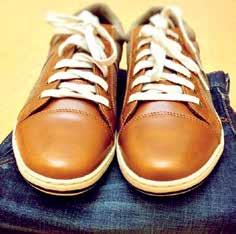
Vision
Working together, our vision is to provide our customers with uncompromising quality, innovation and continuous improvement, which will result in profitable growth and financial strength for our company.
Mission
To build consistent business relationships and a good reputation among all of our customers. To encourage innovation and new ideas with new business approaches to keep a competitive edge. To become one of the most reliable and trusted shoe manufacturers in the market so all of our clients can completely rely on us. To consider and cater to potential wider market requirements. By drawing upon our experience in industrial manufacturing and distribution, we focus on delivering optimal solutions in the least time possible, through collaboration, knowledge sharing and improved efficiency.
What we do
We manufacture a variety of shoes, including school shoes, pumps and sneakers. These are manufactured from a variety of materials. The success of the shoe factory is founded on the creation of enduring relationships within the industry, and the importance of maintaining high-quality products and solid partnerships with our clients.
Customer focus
Key factors that help us succeed are: customer satisfaction, continuous staff training, a highly talented and experienced management team and maintenance of existing contracts.
Skills development
Management will need intensive training on various managerial fields to consolidate their knowledge. We will be working with various service providers and networking with other business organisations. Establishment of affirmative action or equity for the company will be enhanced. We will embark on programmes to familiarise ourselves with quality management protocols. We are committed to obtain advanced learning and prepare ourselves for any joint venture in order to expand.
CONTACT DETAILS
Physical address: Factory No 95 Site 140, Industrial Area 3, Phuthaditjhaba, Free State 9866 Tel: +27 (0) 71 747 2280 Email: info@tirisanoholdings.com Website: www.tirisanoholdings.com










